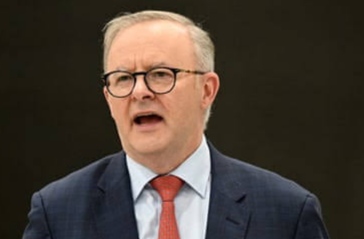The South Australian Voice to Parliament referendum date will be revealed by Prime Minister Anthony Albanese on Wednesday.
Due to the fact that millions of voters are still hesitant, the announcement will kick off a six-week referendum campaign.
“I’ve been thinking about winning this referendum. My goal is to win,” Albanese declared.
Over the next two weeks, 13 million informational flyers will be distributed by the Australian Electoral Commission.
Australian electoral officer Nye Coffey said, “We’re working with Australia Post to transport the booklets right around the country, from elderly care facilities to suburban residences, from outback outposts to high-rise flats.
In advance of the announcement, the prime minister landed in Adelaide on Tuesday.
The state’s vote is significant because the Yes campaign needs a majority of Australians and a majority in at least four of the six states to be successful.
As it always has been for every progressive reform in this nation, South Australia is extremely crucial to this referendum, according to Voice supporter Noel Pearson.
It will be “a real battle for the hearts and minds of the Australian public out there,” according to Warren Mundine, who is supporting the No vote.
Members of the No campaign told Charles Croucher, political editor of 9News, that they think Queensland and Western Australia are on their side.
A significant component of the 2017 Uluru Statement from the Heart was the Indigenous Voice to Parliament.
A nationwide organisation called The Voice would consist of roughly 20 Aboriginal and Torres Strait Islander persons. This group would have an equal representation of men and women, as well as a Youth and Disability Advisory Group.
On issues that are crucial to enhancing the lives of Indigenous Australians, The Voice would advise parliament.
If adopted, the Voice to Parliament would become a part of the Constitution.
Due to the fact that there have only been eight amendments to the Australian Constitution since 1901, any change is a historic event.





